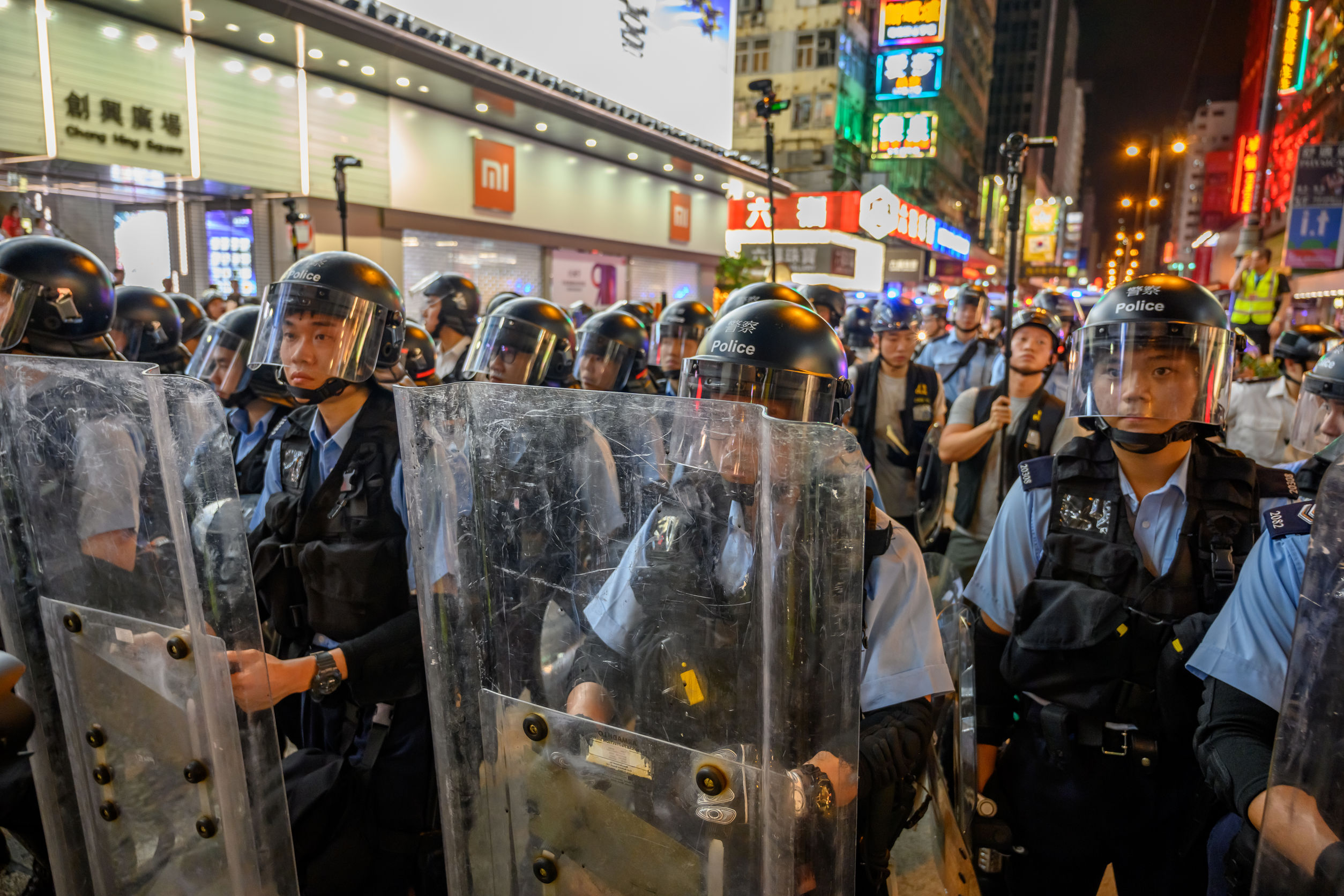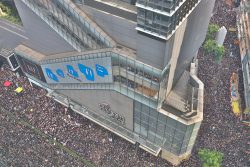Two Cents: How can Hong Kong repair itself?

One of the biggest news stories in Asia this year involved violent protests in Hong Kong by its citizens unhappy with an extradition bill the government wanted to pass, handed down by Chinese officials. While the legislation was eventually scrapped it stirred up a hornet’s nest of unrest against Chinese rule and its growing influence in Hong Kong.
While the world watched the escalating troubles and severity of the protests, boardrooms across Hong Kong, China and Asia-Pacific were awash with panic over what this meant for the long-term prospects for the city. Hong Kong is a major financial hub and the world’s 32nd biggest economy.
What also caused a stir was the way in which employers in Hong Kong were implicitly forced to make a choice and support the government by quelling any opposition from within their ranks – notably their employees. Cathay Pacific was one employer caught in the firing line, losing its CEO, chairman and a number of employees who protested or spoke out in favour of the protestors.
Cathay Pacific’s CEO Rupert Hogg resigned in opposition of Beijing’s censure over his airline staff’s participation in the Hong Kong protests. In an official statement released by Cathay Pacific it said Hogg had resigned in order to take responsibility as the CEO of the company in view of recent events. Should he be applauded or vilified for his actions?
No flash in the pan
The far-reaching impact of the protests are still not clear as the troubles rumble on but this was no flash in the pan. The relationship between Hong Kong and China has been damaged and may not be easy to repair. Understandably, companies are unsure what lies ahead.
While China’s economic powers and influence grows, many companies fear its wrath and are falling into line. The anti-government protests could be the start of things to come. From an employer’s point of view, it does raise the question of whether it’s their job to police and silence their staff who don’t hold the same political views as the powers-that-be? Rupert Hogg paid the price for this.
Some companies are not waiting for the dust to settle and have already decided that their futures don’t lie in Hong Kong and are seeking out alternatives in Asia-Pacific. The economic viability of the former British colony was already under pressure from ‘’parent company” China’s ongoing trade spat with the U.S. America is still the world’s biggest economy and falling foul of its trade tariffs could be just as damaging.
As a result, manufacturing firms have been flocking to the neighbouring countries of Vietnam, Thailand the Philippines to set up factories and plants, to avoid being caught in the middle of the trade dispute. Others are sure to follow, with or without a resolution to the protests.
A short-term problem?
But for companies already well-established in Hong Kong or with strong ties to mainland China, it is a tough decision to make to relocate. Even though the unrest is has carried on longer than expected, it is still viewed as a short-term problem. Businesses rarely make decisions based on a short-term view.
Companies won’t take relocation lightly, says PwC Singapore Tax Partner Allison Cheung. She said that companies will need to see a sustained impact on their workforce, their location of operation and their equipment before they will take the decision to move. But others won’t take the risk of such a wait-and-see approach.
Economic data continues to highlight the damage being caused by the unrest. Tourist numbers have dropped significantly to Hong Kong, affecting the hotel and retail sectors, along with luxury goods. Visitors to Hong Kong plunged nearly 40% in the 12 months to August, as its image as a safe city and a hub for trade, aviation and finance took a battering. The city’s economy has already been plunged into a technical recession and full-year growth is very likely to be negative.
The repercussions of the pro-democracy protests have also been felt in the retail sector, and there are fears that more than 5,600 retail jobs could be lost and thousands of stores shut in the next six months. The Hong Kong Retail Management Association surveyed more than 170 retailers, representing 4,310 stores and 90,000 employees. The results revealed that about 30% said they will cut jobs, while 43% said they cannot continue to operate beyond six months.
Tarnished reputation
Looking long-term, a survey carried out by the American Chamber of Commerce in Singapore in August (at the height of the troubles) confirmed the ongoing protests in Hong Kong had tarnished the city’s business reputation. The unrest had also affected decisions for future investments there according to its findings.
Interestingly, 67% of businesses surveyed said the protests have specifically tarnished Hong Kong’s reputation overseas as a regional base of operations. AmCham said the findings suggest that the city is unlikely to attract new companies to set up a base there.
Hong Kong has always competed with Singapore to attract foreign firms and MNCs to set up their regional headquarters. An overwhelming 91% of businesses surveyed said Singapore would be their primary destination if they were to consider moving out of Hong Kong. One city’s loss is another one’s gain.
Nobody likes uncertainty, particularly the business world. With no obvious end in sight for the unrest, more businesses will be looking at alternatives. Whatever the outcome of the protests, the blow to Hong Kong’s reputation will take some time to repair.




